Gin is a high alcohol drink, which alcoholic drink aficionados know due to its presence in a wide range of cocktails that are popular worldwide. Real gin is made from the fruits of the juniper plant, as well as other fruits. Grains are also used at times. Gin possesses a characteristic fragrance, reminding of juniper, of course due to the use of juniper berries. The alcoholic content of the drink comes out to about 40%.
History of Gin
The Dutch physician Franciscus Sylvius is considered the father of this aromatic drink, or at least the one to receive credit for it anyway. The story goes that he discovered gin in the 17th century. He mixed it, hoping to create a medicine against kidney problems, stomach complaints and to cleanse the blood. Specifically, the physician gathered in one spot the fruits of juniper, anise, coriander and other herbs which had already been proven effective at the time.
Then he soaked them in a spirit solution. Sylvius tried his creation on his patients and the liquid's fame quickly spread. Even though according to sources gin was concocted in the 17th century, juniper fruits had been used for healing since time immemorial. During the Plague epidemic, people tried to protect themselves from the insidious menace by using juniper. Unfortunately, this did not give the desired results.
The modern name for gin originates from the Dutch word genever, which translates as juniper. From the 17th century until today, the writing and pronunciation of the name has been changed and shortened numerous times, resulting in the final name of gin. And even though gin was primarily drunk in the Netherlands at the beginning, it quickly gained popularity among the English too. Perhaps that is the reason why today they are the leading producer of this juniper drink. Despite having been banned in the 19th century, today gin finds itself among the ranks of irreplaceable alcoholic drinks.
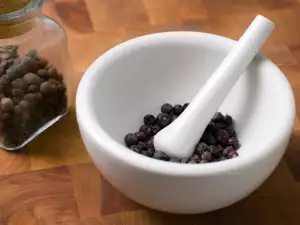
Production of Gin
As mentioned, the main ingredient required to produce real gin is the juniper fruit. It, along with other plants, soaks for a time with grapes. Then the substance is distilled. The resulting spirit does not have any specific color to differentiate it. The specific nuance that the final gin product possesses is owed to the juniper fruits, as well as added herbs such as anise, cumin or cinnamon. Top of the line manufacturers who insist on quality use at least 6-7 different herbs.
Types of Gin
There is a wide variety of this spirit available in stores. London dry gin is a popular one. What is meant by "dry" is that there is no added sugar to the drink. Further, no artificial colors are used for London dry gin.
Another famed type is the so-called Plymouth gin, where manufacturers use a varietal mix of herbs. In addition, it is made with a special water from Dartmoor, England. For this type we cannot neglect to mention the soft taste and strong intoxicating fragrance. For Plymouth gin, they do use artificial flavors but when they are all put together they form one unique flavor. According to tradition, it can only be produced in the city of Plymouth. It is said that manufacturers still use a recipe 3 centuries old.
Dutch gin also deserves recognition. It is unique in that it is prepared according to a specific Dutch recipe dating back to the 17th century. Of course, there's no way for it to be exactly the same as back then, least of all due to the modern technologies that manufacturers use now. However, the Dutch type has 2 methods of production, thanks to which they have both young and old gin. These labels are not related to actual aging but to the difference in flavoring of the 2 sub types. In the production of Dutch gin they also put in citrus rinds besides juniper fruits.
Serving Gin
The aromatic drink is served in a tall glass with a volume between 4/5 cup to 1 cup, with its temperature needing to be about 40°F (7 °C). Along with it, a lemon slice and glass of sparkling water are typically served. The lemon can be placed on the rim of the glass or served separately in a saucer. Optionally, ice is to the drink added as well.
Drinking and Cooking with Gin
Gin can be combined with various drinks, with tonic being its most popular complement hands down. Among the well-known cocktails with gin we have the highly recognized martini. Actually, gin goes perfectly with almost all kinds of alcohol and all fruit flavors, so when using it all you really need to do is let your imagination run wild. Gin can be used to flavor salty dishes as well. Experience chefs include it in specialties with chicken and pork meat.
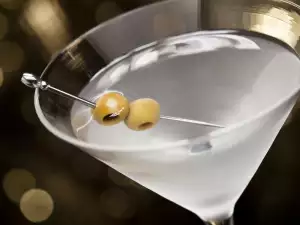
Benefits of Gin
The health benefits of gin have been a topic of discussion for centuries. Quality gin has the ability to cleanse the blood and is used as a diuretic. As such its use is recommended to treat fluid retention and bloating. Curiously, the high-profile cocktail with gin and tonic was invented in India as a preventative measure against malaria.
The active component quinine plays the key role, it is found in tonic and gives it its bitter note. Moderate consumption of the drink aids in removing phlegm more easily. Nowadays, gin is also used as treatment for colds, coughing, bronchitis. Gin compresses help relieve back and joint pains. Gin normalizes and improves heart function.
Folk Medicine with Gin
Western folk medicine offers several healing treatments with gin. You can prepare a homemade syrup for sore throat using the fragrant alcohol. You will need 3 tbsp honey, 1 tbsp gin and 1 tbsp of the juice of an onion. Take 1 tsp of the mixture every few hours, after meals.
Healers also recommend a concoction of gin and chamomile for getting rid of mucous more quickly and relieving lung tension. For this tea you will need 2 tbsp of chamomile. Smother it in 2/3 cup water. Strain and mix it with 2/5 cup gin. Sweeten with honey if desired. Take 1-2 tbsp of the resulting concoction before meals.
Tonic compresses are also recognized, used to relieve back pains. Soak a gauze with with 3 1/3 tbsp gin, 1 tbsp juice of white radish and 1 tbsp juice of onions. Apply the compress to the affected area and remove after 30 min. Then wash the area with warm water.
Dangers of Gin
Even though it has healthy properties, regular consumption of gin in large quantities is not advised since it is still an alcohol. Day to day use of it can lead to addiction. Consumption of gin is not recommended for people who are allergic to juniper, as this may cause discomfort.
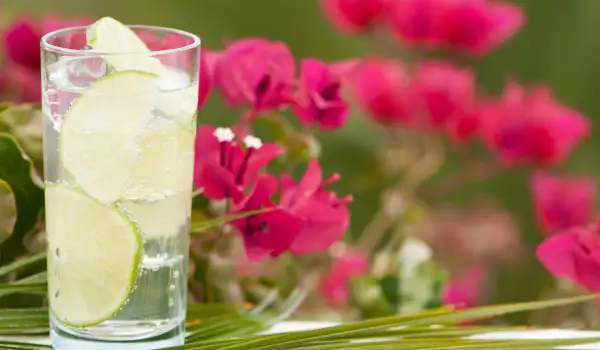
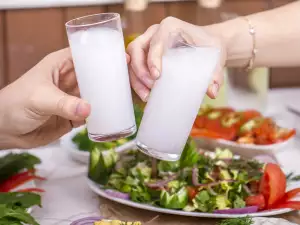

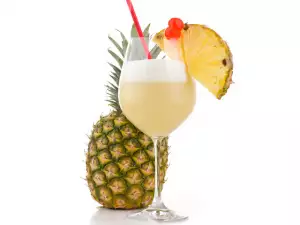
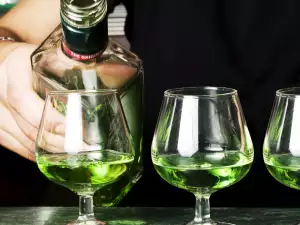

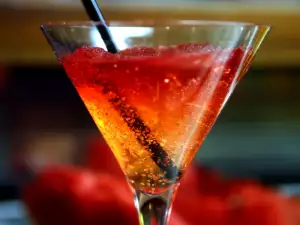
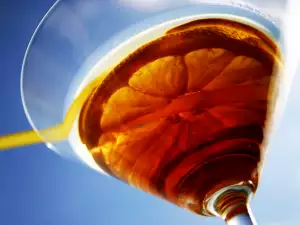
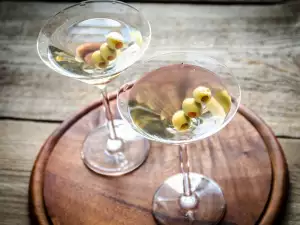
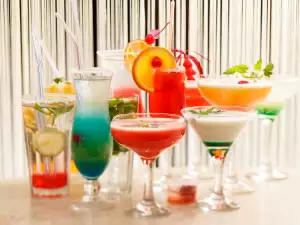


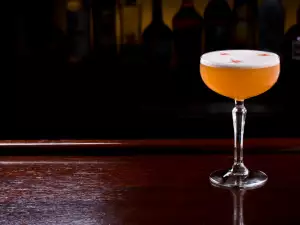

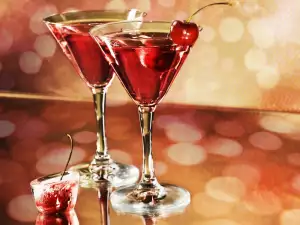
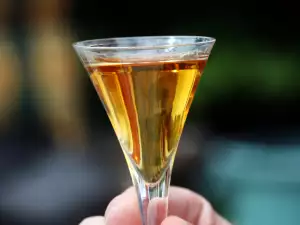




Comments